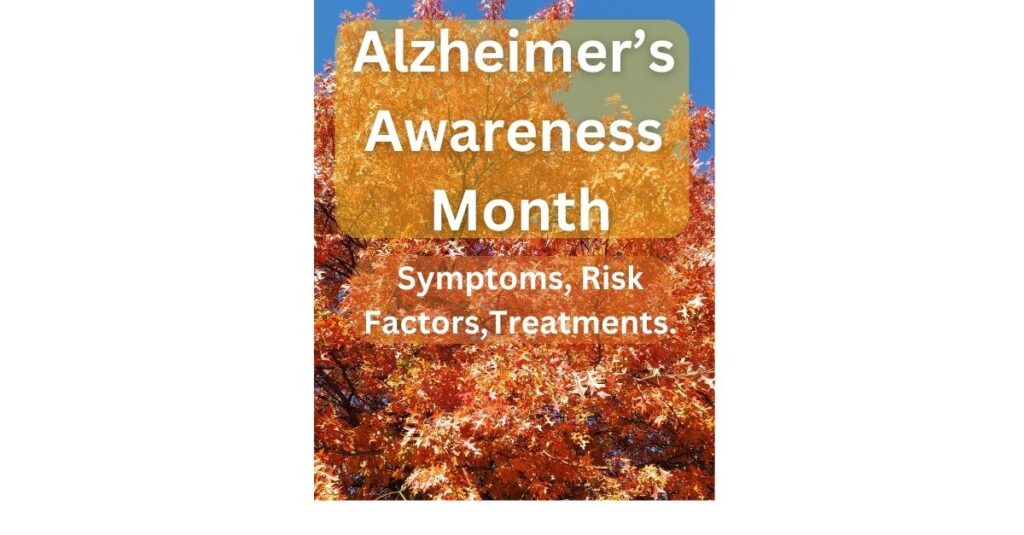
This is the second post to raise awareness during National Alzheimer’s Awareness Month. In the first post, I reviewed the types of Alzheimer’s disease, listed some notable celebrities who have died from it, and gave a brief description of how to care for a loved one with the disease.
Some of you know this disease too well, either by directly caring for someone who has it or seeing its effects on others. Either way, it isn’t easy to experience. As mentioned in part one, my wife and I have had two of our parents with the disease, and my hope is to raise awareness of what actually happens to someone who has the condition and what you can do to prepare yourself to provide care for that person or support those that are caring for their loved one.
Understanding Alzheimer’s Disease
Alzheimer’s disease is a progressive neurodegenerative disorder that primarily affects memory, thinking, and behavior. While the exact cause of Alzheimer’s is not yet fully understood, researchers believe that a combination of genetic, lifestyle, and environmental factors contributes to its development. I’ll discuss the symptoms, risk factors, and potential treatment options for this challenging condition.
Symptoms of Alzheimer’s Disease
The symptoms of Alzheimer’s disease can vary from person to person and progress over time. Early signs may be subtle, making it crucial to identify and seek medical attention early on. There are now blood tests indicating the possibility of contracting the disease years before the effects appear. Here are some common symptoms of Alzheimer’s disease:
1. Memory Loss:
Memory loss is one of the hallmark symptoms of Alzheimer’s. It often begins with forgetting recent information or important events. Individuals may have difficulty recalling familiar faces and places as the disease progresses. Some memory loss naturally occurs as everyone gets older. You may even experience this, but it’s not an issue initially. If you see this happening regularly, it’s time for a checkup.
2. Cognitive Decline:
Alzheimer’s disease affects cognitive functions, leading to thinking, reasoning, and problem-solving difficulties. Individuals may struggle with tasks that require concentration and may experience a decline in decision-making abilities. Just a note: being a manager or executive does not necessarily mean you have cognitive decline. (I am just trying to lighten up the mood here.)
3. Language and Communication Problems:
People with Alzheimer’s may have trouble finding the right words during conversations, following a discussion, or expressing their thoughts coherently. They may also struggle with reading and writing. Being over-stressed may also cause this, so be careful when making observations.
4. Changes in Mood and Behavior:
Alzheimer’s can cause changes in mood and behavior, leading to irritability, apathy, agitation, and depression. Individuals may also experience personality changes, including withdrawal from social interactions. Again, be careful here, as other medical conditions may be causing these swings in moods. You have to be observant and look at several factors simultaneously.
5. Disorientation and Confusion:
Individuals with Alzheimer’s often experience disorientation in time and space. They may get lost in familiar surroundings or have difficulty recognizing people they know well. You can see this when your parent either can’t recall how to get somewhere or come home. You can also see this when they forget a sequence of things that most people would easily recall.
Risk Factors
While anyone can develop Alzheimer’s disease, certain factors may increase the risk. These include:
1. Age:
Age is the most significant risk factor for Alzheimer’s disease. The likelihood of developing the condition increases with advancing age, particularly after age 65. In the previous article, I mentioned the Early and Late onset of the disease. In most cases, people are affected in the Late onset type.
2. Genetics:
Having a family history of Alzheimer’s can increase the risk of developing the disease. Specific genetic mutations linked to early-onset Alzheimer’s and familial forms of the disease can also play a role. Genetic factors play only a small part in the risk of this disease.
3. Down Syndrome:
Individuals with Down syndrome have a higher likelihood of developing Alzheimer’s disease due to a genetic association.
4. Cardiovascular Health:
Factors that contribute to poor cardiovascular health, such as high blood pressure, high cholesterol levels, diabetes, and obesity, may increase the risk of Alzheimer’s disease.
5. Concussions:
Having several severe concussions can increase the likelihood of this disease when you approach old age.
Treatment and Management of Alzheimer’s Disease:
While there is currently no cure for Alzheimer’s disease, specific treatment and management strategies can help improve the quality of life for individuals living with the condition. There is, however, a lot more focus than there has ever been on this disease in the past five years. New research is coming out every month with the potential to slow down and even reverse this disease. You can see some of this progress on my bi-weekly news feed at https://elderhonor.com/news/ .
Current treatments and strategies include:
1. Medications:
Several medications are available that can temporarily alleviate symptoms and slow down the progression of Alzheimer’s disease. These medications work by regulating brain chemicals involved in memory and cognition. The FDA has recently approved medications that show signs of slowing down the effect of the disease, but studies take a long time to determine effectiveness, as you can imagine. Even then, there are other factors in play.
2. Cognitive Stimulation:
Engaging in activities that provide cognitive stimulation may help preserve cognitive function and enhance overall well-being. These activities include puzzles, memory exercises, reading, and new skills.
3. Supportive Care:
Individuals with Alzheimer’s often require support with daily activities as the disease progresses. Assistance with bathing, dressing, and meal preparation can help maintain independence and ensure safety.
4. Lifestyle Modifications:
Adopting a healthy lifestyle can positively impact managing Alzheimer’s disease. Regular exercise, a balanced diet, mental stimulation, and social interaction are all essential components.
This is the second part of my attempt to raise awareness of Alzheimer’s disease by identifying symptoms, risk factors, and treatment approaches for this complex condition. Understanding the symptoms and risk factors allows us to recognize the signs early and seek appropriate medical attention. While there is currently no cure, proactive management and support can enhance the quality of life for individuals with Alzheimer’s and their caregivers. Let us continue to raise awareness, support research, and work towards a future where Alzheimer’s is conquered.
In my next post, I’ll go into more caring and nutrition aspects for those with Alzheimer’s, followed by the last article on where to go for support and some of the latest research being done.
As stated before, this is a challenging disease to manage and care for loved ones who have it, like many others. This one seems to slowly take away one’s personhood, so I ask that you seek support as soon as possible to help you through the journey.


Leave a Reply